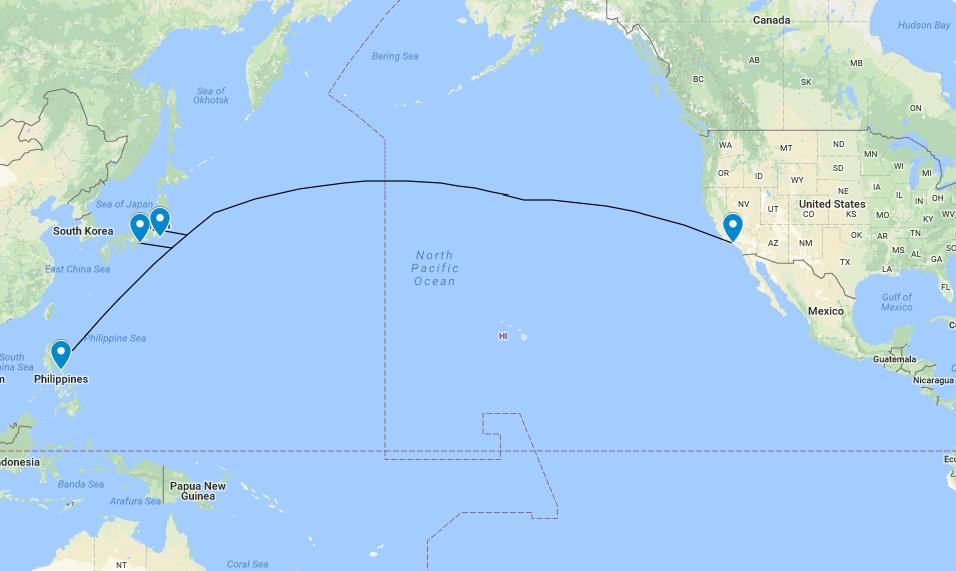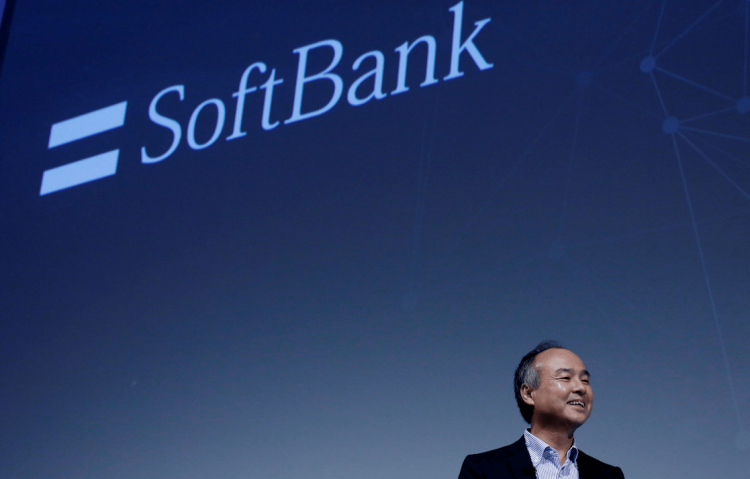Japanese telecommunications giant SoftBank is joining forces with Facebook, Amazon, and a number of other technology companies to build a new 14,000 km (8,700 mile) transpacific subsea cable connecting Asia with North America.
The Jupiter cable system will have two landing points in Japan — at Shima in the Mie prefecture and at Maruyama in the Chiba prefecture — as well as one at Daet in the Philippines and one near Los Angeles in the U.S.

Above: Jupiter Cable System: Route mockup
Joining the aforementioned technology trio on the large-capacity / low-latency cable project are SoftBank’s Japanese rival NTT, Hong Kong’s PCCW Global, and PLDT from the Philippines, with TE SubCom serving as system supplier.
The system is expected to be finished by 2020 and promises a capacity of 60Tbps, though this may be expanded later “to meet rising data demands and complement existing cable systems,” according to a statement issued by NTT.
June 5th: The AI Audit in NYC
Join us next week in NYC to engage with top executive leaders, delving into strategies for auditing AI models to ensure fairness, optimal performance, and ethical compliance across diverse organizations. Secure your attendance for this exclusive invite-only event.
NTT added that it will connect its existing cabling infrastructure with Jupiter to deliver a “redundant three-route structure” that links major conurbations across Asia and the U.S. with a “secure and reliable international network.”

Above: Joining the dots
SoftBank has outlined a vision of a future in which the internet of things (IoT) will usher in trillions of connected devices globally, which is one reason it is joining this consortium. “Anticipating exponential growth of IoT-related businesses, SoftBank is committed to building and optimizing its network infrastructure to support rapidly increasing traffic demand and its customers,” the company said in a press release.
“The demand for bandwidth in the Pacific region continues to grow at a remarkable rate, and is accompanied by the rise of capacity-dependent applications like live video, augmented and virtual reality, and 4k/8k video,” said SoftBank’s Koji Ishii, who will serve as cochairperson of the Jupiter consortium. “Jupiter will provide the necessary diversity of connections and the highest capacity available to meet the needs of the evolving marketplace.”
Facebook and Amazon’s interest in bolstering global internet speeds is hardly a surprise either, given that they both rely on high-speed data transfers for cloud services, video-streaming, and more.
Indeed, many of the big U.S. tech firms have been investing in submarine cabling systems lately. Last month, Microsoft and Facebook’s 4,000-mile transatlantic internet cable was completed, and earlier this year Google revealed it was backing Indigo, a new undersea cable between Asia and Australia. Elsewhere, Google and Facebook last year partnered on a new subsea cable project between Los Angeles and Hong Kong, and a new Google-backed transpacific internet cable from Japan to Oregon also opened for business.

